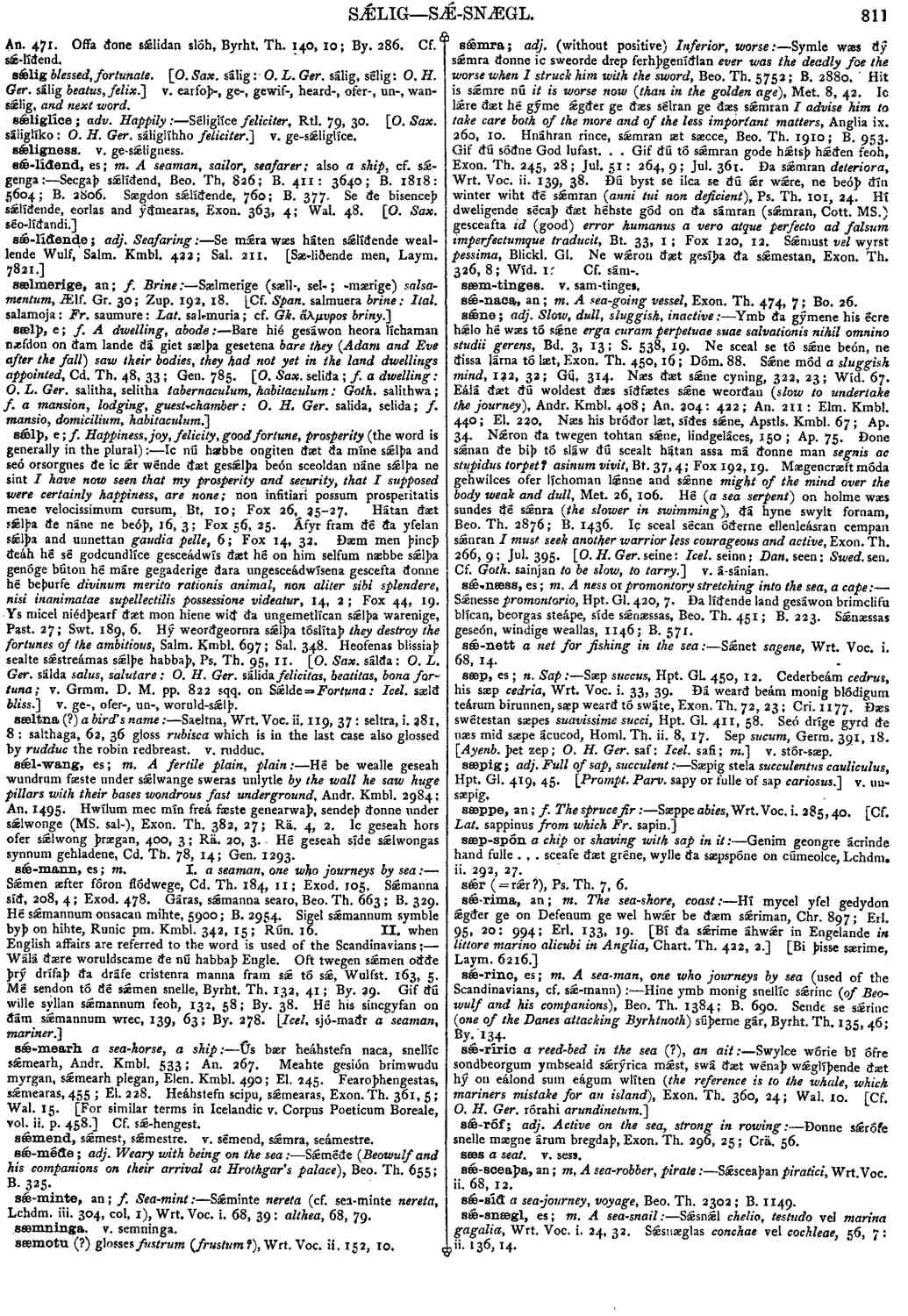sǽmra
- adjective
-
Symle wæs ðý sǽmra ðonne ic sweorde drep ferhþgeníðlan
ever was the deadly foe the worse when I struck him with the sword,
- Beo. Th. 5752; B. 2880.
-
Hit is sǽmre nú
it is worse now (than in the golden age).
- Met. 8, 42.
-
Ic lǽre ðæt hé gýme ǽðter ge ðæs sélran ge ðæs sǽmran
I advise him to take care both of the more and of the less important matters,
Anglia ix.- 260, 10.
-
Hnáhran rince, sǽmran æt sæcce,
- Beo. Th. 1910; B. 953.
-
Gif ðú sóðne God lufast. . . Gif ðú tó sǽmran gode hǽtsþ hǽðen feoh. Exon. Th. 245,
- 28; Jul. 51 : 264, 9; Jul. 361.
-
Ða sǽmran
deteriora,
- Wrt. Voc. ii. 139, 38.
-
Ðú byst se ilca se ðú ǽr ware, ne beóþ ðín winter wiht ðé sǽmran (
anni tui non deficient).
- Ps. Th. 101, 24.
-
Hí dweligende sécaþ ðæt héhste gód on ða sámran (sǽmran, Cote. MS. ) gesceafta
id (good) error humanus a vero atque perfecto ad falsum imperfectumque traducit,
- Bt. 33, 1; Fox 120, 12.
-
Sǽmust vel wyrst
pessima,
- Blickl. Gl. Ne
Bosworth, Joseph. “sǽmra.” In An Anglo-Saxon Dictionary Online, edited by Thomas Northcote Toller, Christ Sean, and Ondřej Tichy. Prague: Faculty of Arts, Charles University, 2014. https://bosworthtoller.com/26244.
Checked: 0